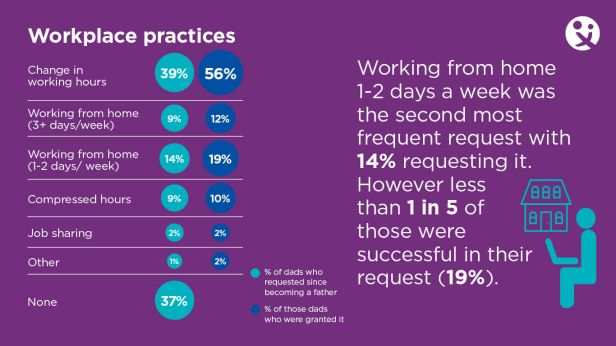On the road to true equality: mums and dads in 2019 and beyond
Published: 12 Jun 2019

Han-Son Lee is the founder of DaddiLife – a parenting website for dads and a community of over 100,000 Millennial Dads.
As Bob Dylan once sang, ‘times are a changing.’ And when it comes to parents in the workplace, the last decade has brought much change—focussed predominantly on mothers at work (though there is much improvement needed there still)—but it is at least a start. The next decade may bring about even more change for even more parents, as changing family dynamics start to shine a light into the future ahead.
When we think about the type of change we want to see in this country, we need not look much further than Sweden, a country that seems to have got the right idea when it comes to parenting at work – true equality for both mum and dad.
As a reminder of the parental leave policy in Sweden:
- New mothers and fathers share no less than 480 days (approximately 16 months) for each child.
- Parents generally get 80% of their salary if they have been working legally in Sweden for at least 240 days and paid taxes.
- With the realisation that a mother’s post-partum health could also be improved by giving the other parent paid leave, a 2012 Swedish law allows fathers to take up to 30 days in the year after the birth, as needed, while the mother is still on leave. Recent research has shown that there was a 26% decrease in anti-anxiety prescriptions for new mothers after this law came into effect.
How far are we from the Swedish model?
Why the Swedish model is becoming ever more in focus is largely down to changing family dynamics in the UK. There are sparks of change that are taking place with a millennial generation of parents, in particular dads, who are becoming far more equalised in their parenting approach. This bodes well for the foundation of true change needed for both parents.
DaddiLife recently conducted new research with over 2,000 working millennial fathers across the UK and found that almost 9 in 10 (87%) are now “mostly” or “fully” involved in day to day parenting. These are tasks that society by and large used to see as the domain of mothers exclusively. But new millennial dads are showing that they can do more than just buy the best car seat: they are becoming more active across day-to-day tasks – cooking, cleaning, nappy changing, bed time, bath time, and even more.
However, despite this change happening at pace across the length and breadth of homes in the UK, there is one place this change isn’t being reflected as quickly: the workplace.
Father’s Day – a time for reflection
When we last asked what fathers really want for Father’s Day, the consensus was clear: more work-life balance is crucial to many fathers’ definition of success.
But how much has really changed?
Unfortunately, judging by the findings of our recent research, not much.

We found that almost two-thirds of all the dads we surveyed had requested a form of flexible working since becoming a father (63%), but the percentages of dads being granted flexibility remains very low. Take ‘working from home 1-2 days a week’ for instance: 14% of all the dads surveyed had requested this since becoming a father, but less than 1 in 5 of those dads (19%) had been granted it.
The need to redress this balance is more crucial than ever. Working Families’ 2019 Modern Families Index Employer Report highlights that 51% of family respondents said they would recommend an employer because of their family- friendly policies. Parents in that survey also said that flexibility is a great tool for boosting employee happiness (68%), effort (51%) and performance (55%).
The journey to true equality
So what changes need to be made for dads in the workplace to create a path for true equality at work?
For me, there are three areas that need conjoined effort:
- A renewed focus on paternity: What the workplace thinks of as “paternity” needs to evolve. While it’s fantastic that big organisations like Aviva and Diageo have recently committed to extended forms of paternity leave, statutory paternity leave and paternity pay are still at levels that are far too difficult to create true equality across our SME business community. This need both government and business collaboration to succeed.
- Greater flexibility at work: 59% of our respondents called for greater flexibility at work and nearly two-thirds (63%) called specifically for more line management training when it comes to new dads at work. We need to take heed of how ingrained our management behaviours have become toward parents, and particularly toward more involved dads.
- Different sides of the same coin: One day, the language at work won’t be ‘mum’ or ‘dad’, but ‘parent’. And until then, we need to consider how both parts are functioning in modern family. And whether a child has a mum and dad, a dad and dad, or a mum and mum, we need to support the future shape of parents at work to ensure that our own leadership pathways and cultural inclusion policies are really reflecting 21st century Britain.